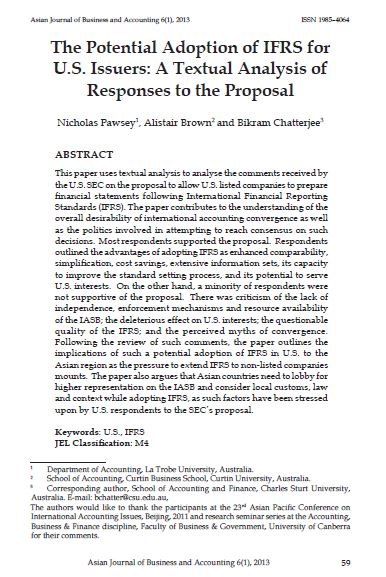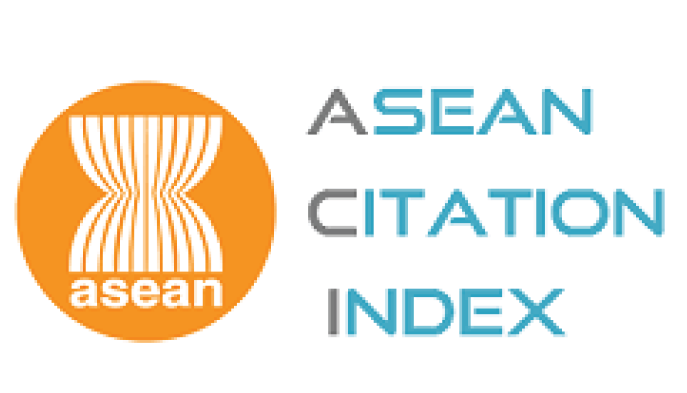The Potential Adoption of IFRS for U.S. Issuers: A Textual Analysis of Responses to the Proposal
Abstract
This paper uses textual analysis to analyse the comments received by the U.S. SEC on the proposal to allow U.S. listed companies to prepare
financial statements following International Financial Reporting
Standards (IFRS). The paper contributes to the understanding of the
overall desirability of international accounting convergence as well
as the politics involved in attempting to reach consensus on such
decisions. Most respondents supported the proposal. Respondents
outlined the advantages of adopting IFRS as enhanced comparability,
simplification, cost savings, extensive information sets, its capacity
to improve the standard setting process, and its potential to serve
U.S. interests. On the other hand, a minority of respondents were
not supportive of the proposal. There was criticism of the lack of
independence, enforcement mechanisms and resource availability
of the IASB; the deleterious effect on U.S. interests; the questionable
quality of the IFRS; and the perceived myths of convergence.
Following the review of such comments, the paper outlines the
implications of such a potential adoption of IFRS in U.S. to the
Asian region as the pressure to extend IFRS to non-listed companies
mounts. The paper also argues that Asian countries need to lobby for
higher representation on the IASB and consider local customs, law
and context while adopting IFRS, as such factors have been stressed
upon by U.S. respondents to the SEC’s proposal.
Downloads








